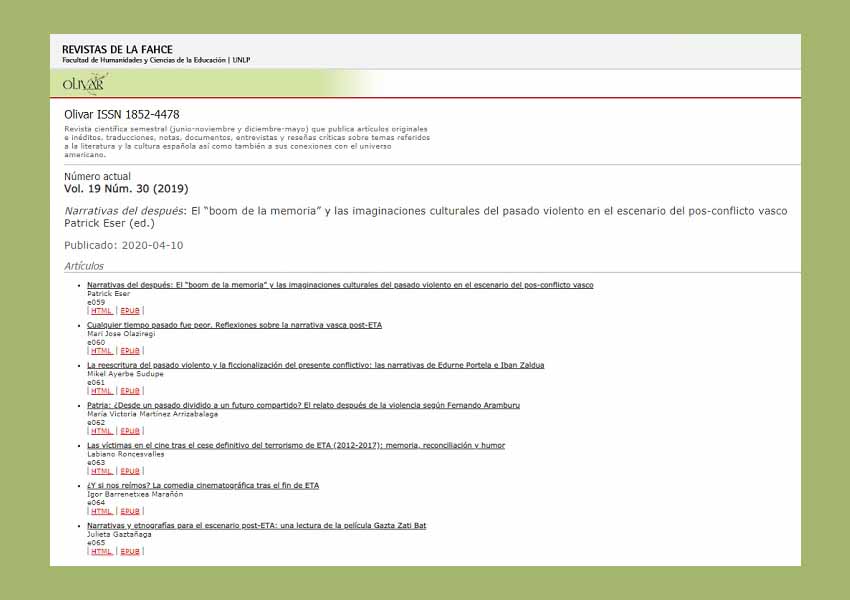La Plata, Argentina. We are talking about No. 30 of the Olivar magazine, a biannual publication from the College of Science and Humanities and Education at the National University of La Plata (UNLP). This latest issue includes a dossier of academic articles about Euskadi and the Basque post-conflict complied by German specialist Patrick Eser, entitled Narratives of the After: The “Memory Boom” and the Cultural Imaginations of the Vviolent Past in the Basque Post-Conflict Scenario.
These can be accessed free of charge from their respective links with articles discussing the relationship between the current times, and the “violent past,” from different points of views and disciplines. The variety of perspectives also comes from the varied origins of their authors. Included in the dossier are works from researchers in the Basque Country, Argentina as well as Germany.
Patrik Eser is an assistant professor of Literature and Hispanic Cultural Studies at Kassel University in Germany as well as being a researcher at UNLP with a Feodor Lynen Scholarships for advanced researchers from the Alexander von Humboldt Foundation. He received his Ph.D. with research conducted on Basque and Catalan nationalism in the context of globalization and European integration.
Dossier:
-The “Memory Boom” and the Cultural Imaginations of the Vviolent Past in the Basque Post-Conflict Scenario (Patrick Eser)
-Any Other Time in the Past was Worse. Reflections on the Basque Post-ETA Narrative (Mari Jose Olaziregi)
-The Rewriting of the ViolentPpast and the Fictionalization of the Conflictive Present: the Narratives of Edurne Portela and Iban Zaldua (Mikel Ayerbe Sudupe)
-Homeland: From a Divided Past to a Shared Future? The Story after the Violence According to Fernando Aramburu (María Victoria Martínez Arrizabalaga)
-The Victims in Cinema after the Definitive Cessation of ETA Terrorism (2012-2017): Memory, Reconciliation and Humor (Labiano Roncesvalles)
-What if We Laugh? Comedy Film after the end of ETA (Igor Barrenetxea Marañón)
-Narratives and Ethnographies for the post-ETA Scenario: A Reading from the film Gazta Zati Bat (Julieta Gaztañaga)






 Send to a friend
Send to a friend Add comment
Add comment








